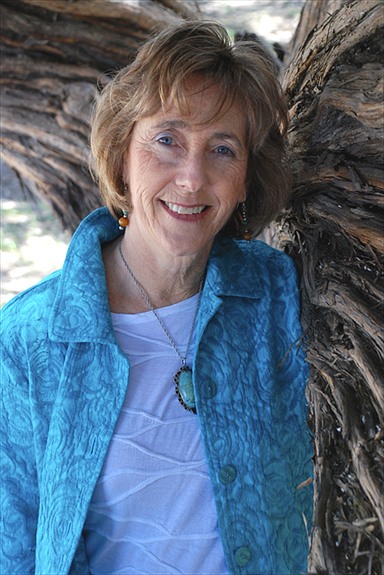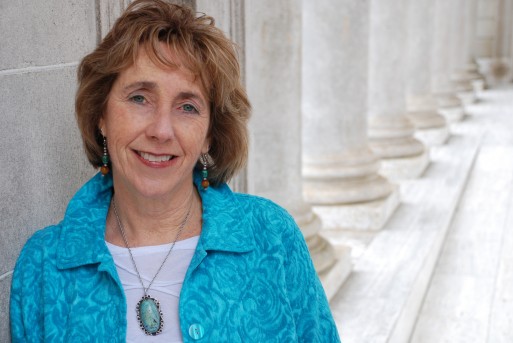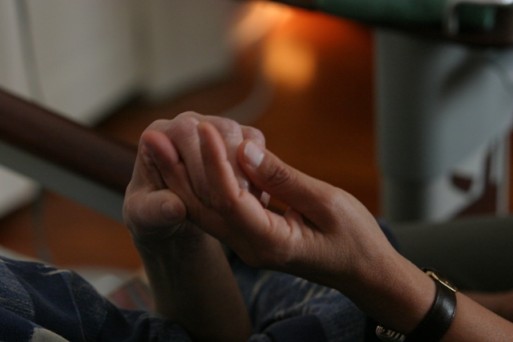Judith Redwing Keyssar is the Director of the Palliative Care Program at Seniors at Home, a program of the Jewish Family and Children’s Service. Her book, Last Acts of Kindness (2010), is a collection of her experiences being a self-described “midwife to the dying”—working in both palliative care and end-of-life care and supporting people through their personal dying processes. We spoke with Redwing about her work as a palliative care nurse and the way we as a culture approach death and end-of-life, and what changes can be made.
Editor’s Note: This interview has been edited for length and readability
How would you define your approach to death and dying?
That’s a big question! Basically, I would say that I believe strongly that we are impermanent beings and that death is really simply a part of life. It is a very important part of life, just as birth is, because they are the two main transitions of the spirit: coming into this world, and leaving this world. My approach to working with people around death and dying is to try to encourage us all to understand that we really are impermanent beings. In our Western, American culture, we tend to cling to the material plane so strongly. And because we don’t talk about death and dying very well, or very often, or in the context of life, it becomes this very separate thing from the rest of life. And it’s not. It’s very much a part of the cycle.
Many people would say there’s a taboo in our culture against talking about death.
The taboo about talking about death is a dangerous thing. We have broken most of the taboos in our culture about things you can and can’t talk about: sex, gender issues, health care in all kinds of public places. The kinds of advertisements you see on television for medications and all the side effects never used to happen before! But the fact that we live in a culture that cannot talk about the one thing that is inevitable for every single human being and unites us all makes everything harder.
Often, when I give talks, I joke about the fact that in our culture we say the two for-sure things are death and taxes—and yet we do prepare our taxes every single year! We do consider what our finances are, and the fact that you have to pay taxes. But how often do people consider preparation for the end of their life? How often do people actually review their advance directives or have conversations with people who love and care about them and with their health care providers? It’s very rare. And yet we say, it is the one for-sure thing.
I call myself a “midwife to the dying,” which is how I feel about the work that I do in terms of supporting people and their spirits. It feels to me, each time I’m at the bedside of someone who’s dying, that it’s very much like the birth process, something I have also attended many times.
Yet we have so much joy and celebration and acknowledgement about the birth process. And my generation, the Baby Boomers, did a lot to de-medicalize this process: taking it away from anesthesia, creating a sense that even if women have babies in hospitals you can allow family to be at the bedside. I really think it is going to be the same cohort of people who is going to revolutionize the dying process and take it away from having to be a medical event and reclaim the fact that it is a monumental spiritual experience.
How did you enter the world of palliative care?
I was involved in all different kinds of healing modalities when I was young: different kinds of body work, spiritual practices, herbal medicine. I dropped out of a premed program back in 1971. When I became a nurse, it was really because my closest friend, who was 30 at the time, was in a motorcycle accident and was in a coma for three weeks at Marin General Hospital. When I walked into that intensive care unit, I really understood that the work I was supposed to do in my life was about being a midwife to the dying, and about being present for people who were at the end of life. And it was an incredibly powerful gift that I received from my friend in her dying process, leading me to the work I was supposed to be doing on this earth.
When I became a nurse, I went through various specialties of oncology and critical care in order to learn the depth of our health care system and understand what people go through in health care, so that I could be best prepared to help people when I became a hospice nurse, and then a palliative care nurse and director. All the while, I had this idea of being a midwife to the dying. That was always my focus when I was working with people: to really support them emotionally and spiritually as well as physically, and to see what I could do to ease their suffering.
I feel very lucky that this is the work I get to do in the world. I spent some years being a clinical director at the Zen Hospice Project before I became palliative care director here at Seniors at Home.
Can you tell us more about the emotional and spiritual aspect of the palliative care and end-of-life processes?
First of all, there needs to be an understanding that palliative care is not just about end-of-life care and dying. Palliative care is really the philosophy of care underneath hospice, about that release of suffering not only physically but spiritually and psychologically—the holistic approach to dealing with serious illness. It is not only about death and dying.
That said, I think the question of spirituality in our culture is a tricky one. It’s so often equated with religion. Personally, I think they are separate: Many people do not necessarily have religious faith but still have a connection to what they feel is a spiritual sense, the sense that there is something bigger than them present in the world. For some people it’s nature; for some people it’s connected to music.
For a lot of people dealing with illness, that spiritual or emotional plane is a big part of what comes up, what has to be dealt with. In our health care system, we tend to only deal with the physical, the technical, the medical aspects. Palliative care is an interdisciplinary and holistic approach that uses social work and psychology as well as medicine. It’s that palliative care approach that helps people look at the broader picture of what they’re going through.
What is the state of palliative care in our health system? Are there changes that need to be made?
Huge changes need to be made to deal with end-of-life. We’ve come a long way in terms of medicine and technology and our ability to keep people alive. Hospice, since the late 1970s, has done a lot to increase awareness around issues of death and dying. And palliative care in the last 15 years has become much better understood and much more public. There have been many studies in the last few years about the importance of palliative care.
There’s been a lot in the news the last few years, so people are talking about it; and yet still I find that so many of my colleagues in hospitals and medicine either don’t understand what palliative care is, or they don’t understand the importance and need of palliative care being part of any plan of care, not just at the end-of-life but throughout the course of an illness.
At a hospital, so often people are like, “Oh, that gall bladder in room 3” or “the heart attack in room 20.” That’s how people are seen in our health care system. I think, honestly, that until we as a culture of individuals work to really have self-awareness about our own feelings and thoughts and beliefs about our own mortality, it’s very challenging to help someone else who is closer to end-of-life.
It’s really only been in recent years that there have been requirements about palliative care. Now there are certifications in palliative care and hospice for nursing and for medicine, and soon hopefully there will be for social work. One of the reasons I wrote my book was not only for the public, but also for clinicians. My book is stories of people I’ve been there with in the dying process, and I ask the reader to consider, “how would you have dealt with this situation, if you had been the nurse, the doctor, or the social worker?”
I think so many clinicians are hesitant to refer to palliative care teams because they think that means either the patient’s going to die and they’re not ready for that; or, they think it means giving up on the patient. But that’s not it at all. It means offering them a whole other set of solutions and support for all that they’re experiencing.
 Finally, what words of advice can you leave our SevenPonds readers, who may be facing end of life or helping a loved one to face it?
Finally, what words of advice can you leave our SevenPonds readers, who may be facing end of life or helping a loved one to face it?
Of course, my first advice is to read my book! I think, as I’ve said, one of the most important ways to that self-awareness is for each of us to understand our own feelings and our own beliefs about what it might be like for us to die, since we’re all going to. And I think when we consider for ourselves, it gives us a better understanding of what it might be like for our loved one or a friend who we’re caring for who might already be in that process. I think that self-assessment is a critical piece.
I also think that learning about the dying process is important for a lot of people. We are an information-based society, and you can read about this process. I had an elderly, 88-year-old patient who was caring for her 90-year-old husband. She said, “If I hadn’t had all that information from you that really explained to me what the dying process was going to look like, it would have been so difficult without knowing ahead of time.”
We somehow assume that people know these things—but most people don’t spend time at the bedsides of people who are dying. So it’s scary when you’re doing it for the first time. And it’s even scarier if you have no understanding of what the process is going to look like. It’s really important to educate ourselves and each other, and not be afraid to ask questions and learn about this process that, once again, is going to happen to each an every one of us
So I think that’s really the most important thing. There are resources everywhere for people to go to get support: cancer centers, agencies like the one I work for (which has a whole intake department to call for resources), online. I think having information and going through one’s own process, filling out advance directives, having conversations with your support system about your feelings—just being prepared is the most important thing.
Thanks so much for speaking with us, Redwing!

 What Is a Palliative Care Nurse? An Interview with Judith Redwing Keyssar
What Is a Palliative Care Nurse? An Interview with Judith Redwing Keyssar




 Funeral Favors Offer Visitors a Tangible Memento
Funeral Favors Offer Visitors a Tangible Memento
 “Comeback” by Prince
“Comeback” by Prince
 “Other Side” Documents Woman’s Fight To Die As She Wishes
“Other Side” Documents Woman’s Fight To Die As She Wishes














